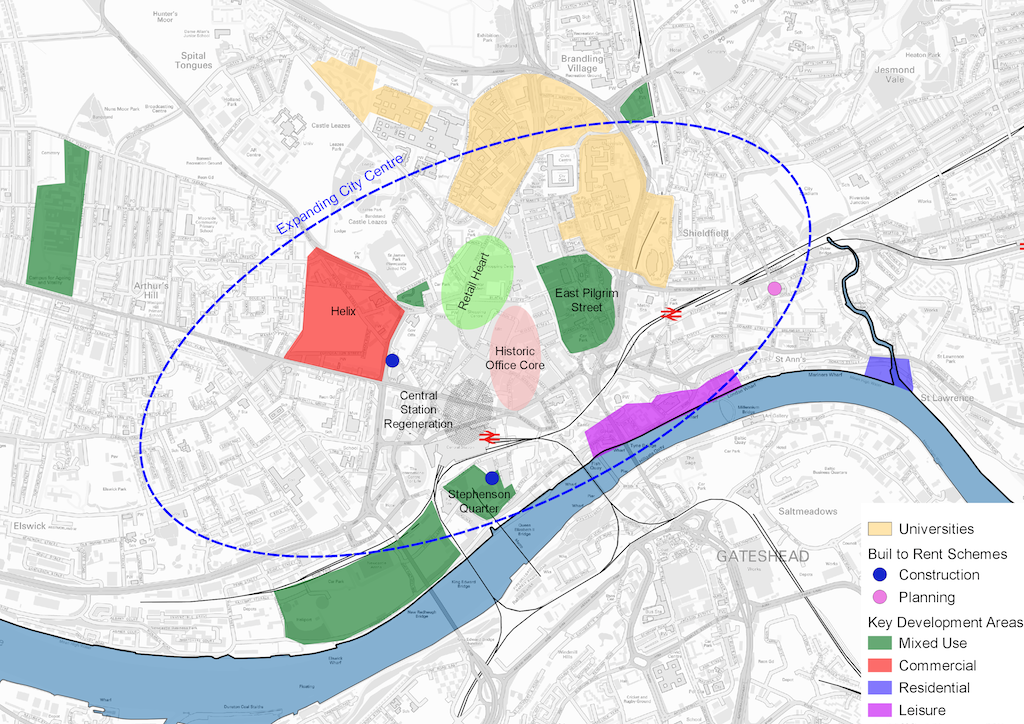
Newcastle is growing fast, but imaginative use of green belt land must be considered to meet ongoing need, says Ray Minto, Development Director, Savills Newcastle.
Newcastle is one of the fastest growing cities in the UK with 21,000 new homes and 14,000 new jobs expected over the next 12 years. According to Savills research, launched to coincide with the opening of our new office in Newcastle, the city is seeing a new wave of mixed use city centre regeneration schemes which is revitalising the urban core, ensuring housing need is met and enabling the city to expand outwards.
Spotlight on Newcastle: A north eastern powerhouse identifies mixed use city centre schemes such as Helix, East Pilgrim Street and Stephenson Quarter as key to driving growth in the city, with each scheme offering something different and providing space which will complement rather than compete with one another.
East Pilgrim Street represents one of the most strategically important city centre regeneration areas in the north of England. The northern block of the site is allocated for retail led development which provides an opportunity to extend the prime retail-led offer. This will be supported by mixed uses in the central and southern blocks, including office, residential and leisure.
Furthermore, Newcastle will benefit from the North of Tyne devolution deal in the future. Implemented in 2018, the deal will bring Newcastle, North Tyneside and Northumberland together under a Mayor, and will bring an additional £600 million of investment to the region over the next 30 years. Four Neighbourhood Opportunity Areas in Newcastle have already been identified in the Core Strategy, with the potential to deliver over 20,000 homes.
New powers
The powers devolved to the new Combined Authority will include land acquisition and disposal, and the ability to establish Mayoral Development Corporations to serve North of Tyne’s housing and regeneration ambitions. Whilst the devolution deal will mean the Combined Authority will have a voice at Westminster and some powers devolved to them, we are relatively ‘devo-light’ in comparison to other cities with many of the powers being retained by government so we will need to work hard to ensure the projected housing delivery is met.
Unlike other major UK cities, the challenge does not lie with a lack of housing supply, rather the city has seen record levels of housing delivery over recent years, delivering over 2,700 and 2,300 homes in 2016-17 and 2017-18 respectively. Part of the city’s success in increasing housing delivery has come from large scale developments following green belt release, in particular Newcastle Great Park.
Newcastle has benefitted from a pro-development local government and the city is now delivering far in excess of its Core Strategy target of 750 per annum; welcome news following a decade of undershooting its targets. This poses a somewhat unique challenge among major regional cities with the focus not on how to increase delivery to meet demand, but how to ensure this level of delivery continues so that Newcastle can maintain its position as one of the most affordable UK core cities.
Highly constrained by the green belt, the city will need to think more imaginatively in order to identify new sites if it is to sustain its current and forecasted strong economic growth.










